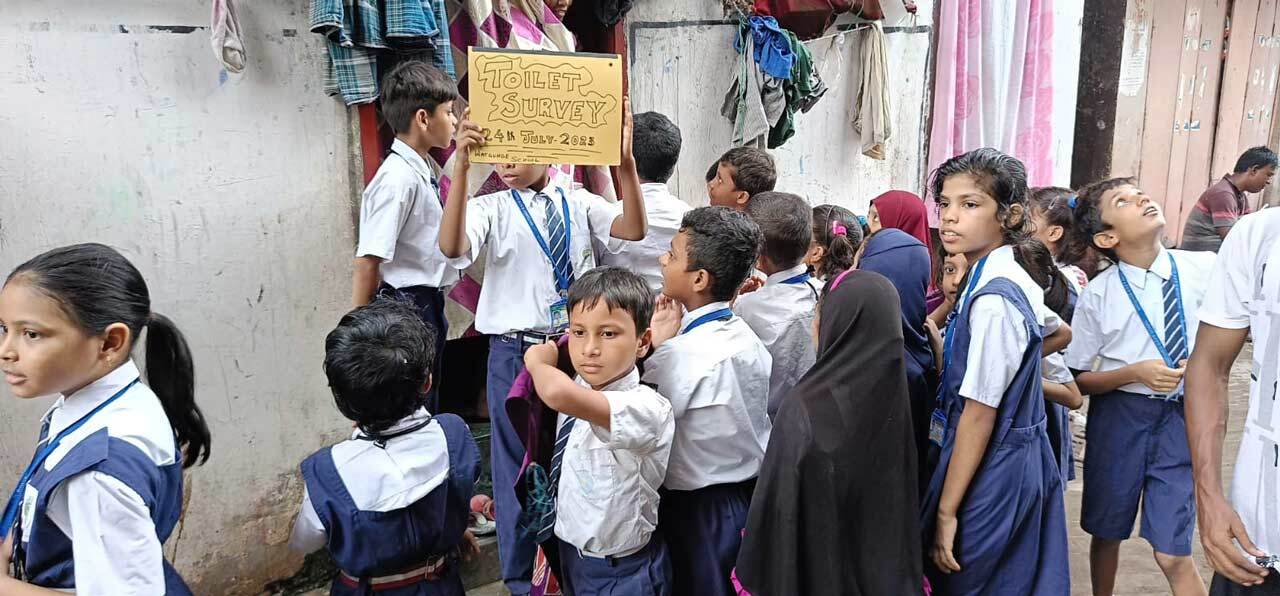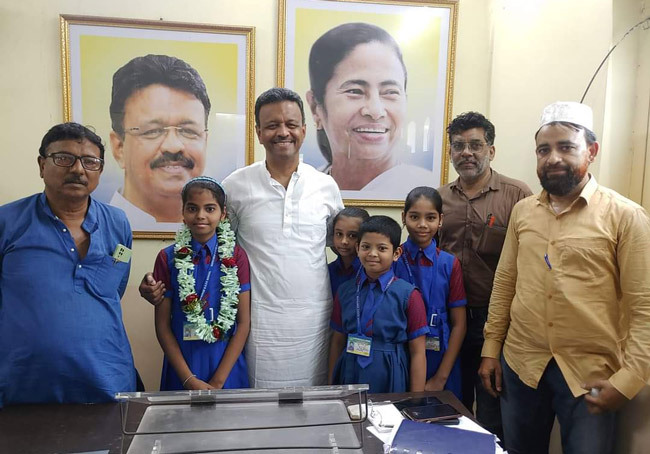Kolkata, India
meet

meet
Kolkata, India
Watgunj GSFP School, founded in 1960 in Kolkata's Khidderpore area, is a co-ed Urdu medium primary school with about 200 students and seven teachers. Thanks to the 2018 Splash-supported project, the school now has safe drinking water, improved hygiene facilities (including one filter, two drinking water stations, and one handwashing station), and refurbished toilets and urinals.
During the project, the Child Cabinet received hygiene training, and teachers and students engaged in activities like orientation, soap drives, and regular meetings. Javed Nehal, a local teacher, played a crucial role in leading and training the Child Cabinet.
These proactive cabinet members addressed sanitation issues in their community, "Steam Gali," by organizing awareness meetings and conducting surveys. They discovered that many residents lacked clean toilets and faced serious hygiene problems. The children and teachers encouraged families to take responsibility for cleaning the community toilets.
In 2020, the COVID-19 pandemic further highlighted the importance of hygiene, motivating them to continue their efforts even during lockdowns. They continued their awareness program in 2021 and extended it to "Parai Sikhalaya" community schools (schooling organized for children to continue learning during lockdowns).
The new Child Cabinet also repeated the survey in November 2021, revealing a persistent issue with a lack of clean toilets. They organized a World Toilet Day event the same month and met with the Mayor to request more toilets, but space constraints posed challenges.
In early 2022, another survey confirmed the ongoing problem, leading to another visit to the Mayor. Although the Municipality authorities attempted to find space for new toilets, a solution remained elusive.

On November 14, 2022, the child cabinet members received digital tools training. The school continued to form and educate new Child Cabinets, maintaining the focus on sanitation and hygiene.
In August 2023, the school conducted another survey, adding a message about installing exhaust fans in community toilets. Despite COVID-19 challenges and lockdowns, the children and teachers persevered, resulting in improved hygiene practices, increased individual household toilets, and cleaner surroundings in the community.
Even after more than a year and a half of COVID-19 and lockdowns, the children and teachers didn't give up on their goal. Their persistent efforts to improve the community are impressive. Mr. Nehal says that their hard work is paying off, with better hygiene practices in the community.
He also noted that some families are now eager to build their own toilets, increasing the number of private toilets in the area. They've started using cleaning products in community toilets and even hired a sweeper to clean them once a week. Families using these toilets are also using plenty of water to keep them clean and odor-free. They've stopped littering, especially in drains, preventing water clogs and keeping the area clean throughout the day.
Most importantly, people's mindset has changed, and there's a growing demand for toilets to ensure proper sanitation and hygiene. Some families who moved to other places made sure they have personal toilets there.
The continuous dedication of the children and teachers to maintain the cleanliness and hygiene of their community is truly praiseworthy.